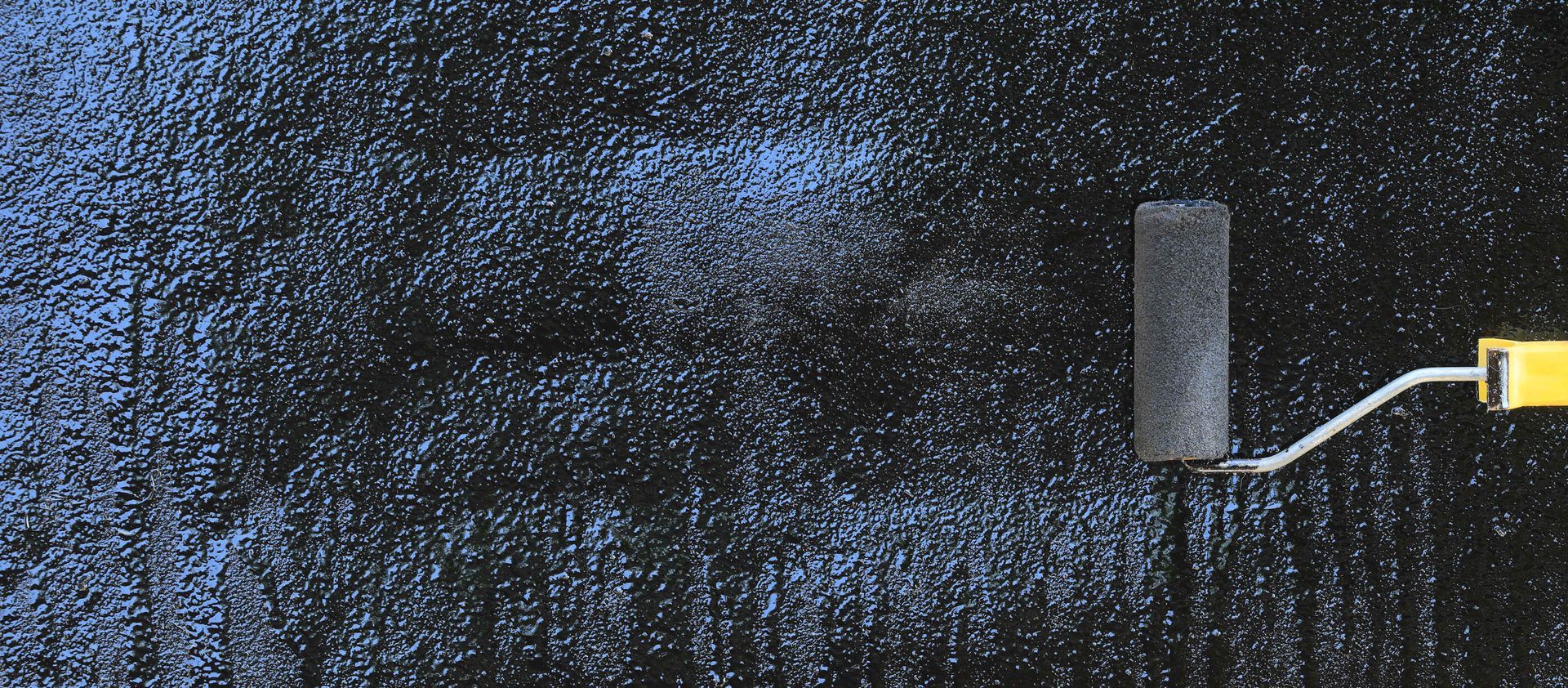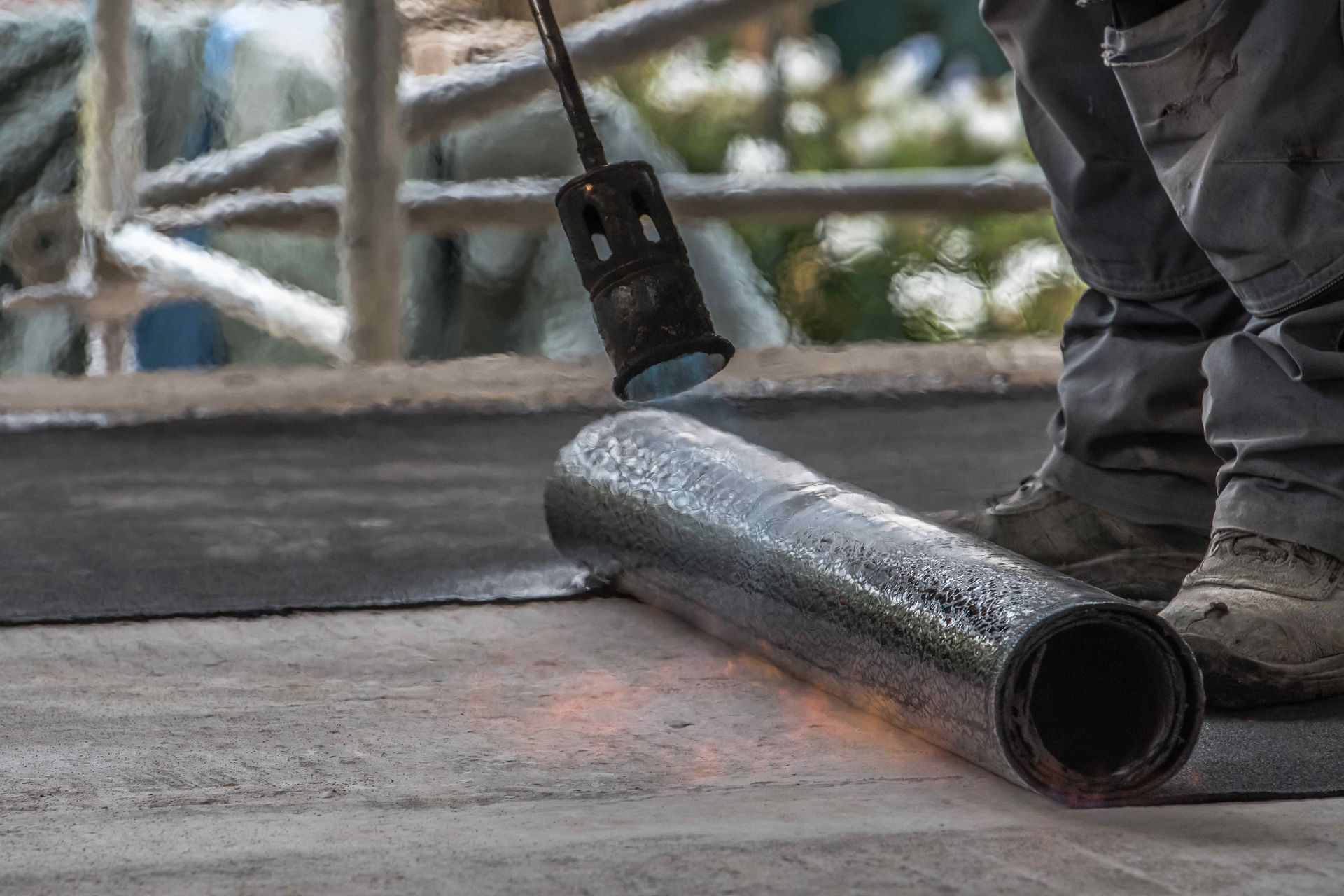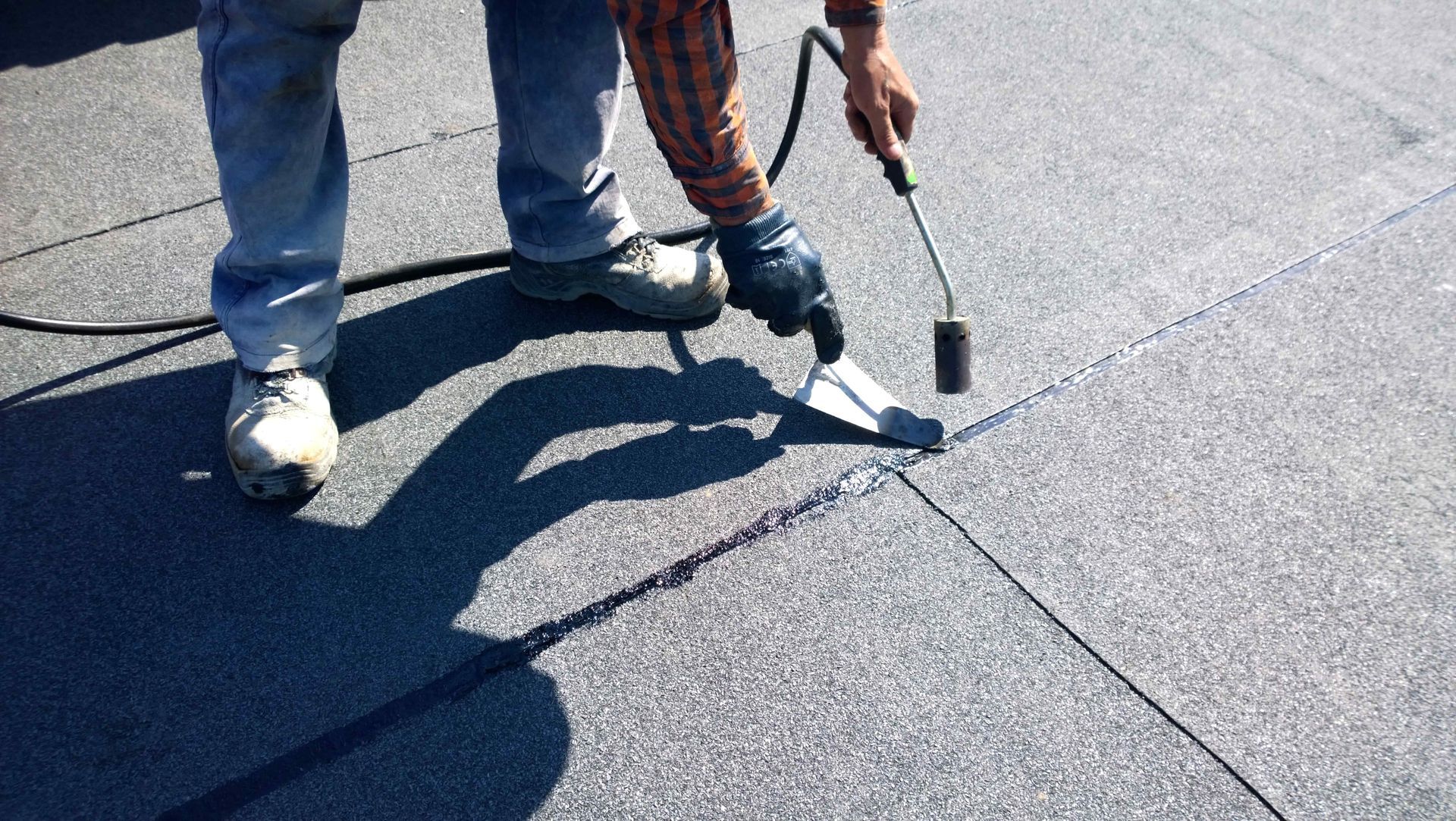Roof Repair Coating
Roof Repair Coating
In the blog post "Roof Repair Coating," we will explore the world of roof coatings, diving into their key features and benefits. Join us on this informative journey as we uncover the various types of roof repair coatings available in the market and how they can effectively protect and enhance the lifespan of your roof. Understanding the uses and applications of different coatings on various roof types will provide valuable insights into selecting the ideal solution for your specific needs. Make an informed decision by learning about the importance of choosing the right roof repair coating tailored to your roof's material and condition.
Introduction to Roof Repair Coating
In the dynamic world of roofing, repair coating plays a vital role in preserving and maintaining the integrity of your roof. From minor repairs to complete solutions, understanding the basics of roof repair coating allows you to make informed decisions to protect your home or business. This blog post will guide you through the different types of roof repair coatings available, their applications, and how to choose the right one to ensure the longevity and durability of your roof. Let's delve into the essential aspects of roof repair coating to help you make the best choice for your roofing needs.
Definition of Roof Repair Coating
Roof repair coating refers to a protective material applied to roofs to enhance their durability, weather resistance, and overall performance. These coatings are designed to seal and protect the roof surface, preventing moisture infiltration, UV damage, and other environmental factors from causing harm. Roof repair coatings can extend the lifespan of roofs by providing an additional layer of protection and helping to address existing issues such as leaks or cracks. They come in various formulations, such as silicone, acrylic, and polyurethane, each offering unique benefits based on the specific needs of the roof. When properly applied, roof repair coatings can improve energy efficiency, reduce maintenance costs, and contribute to the sustainability of the building.
Types of Roof Repair Coating
In the "Types of Roof Repair Coating" section, you can delve into detailed explanations of each type of coating, highlighting their unique characteristics, benefits, and recommended applications. Below is a sample of what content for this section could look like:---Silicone Roof Coating:Silicone roof coatings are known for their durability and resistance to UV radiation. They provide excellent waterproofing properties and are often used on flat roofs or areas with standing water. Silicone coatings offer superior flexibility, making them ideal for roofs that experience extreme temperature variations. They are also eco-friendly and can be easily recoated for added protection.Acrylic Roof Coating:Acrylic roof coatings are popular for their reflective properties, which can help reduce energy costs by keeping the building cooler. They are available in various colors to match different roof styles and enhance curb appeal. Acrylic coatings are easy to apply and can provide good protection against the elements. They are typically used on sloped roofs and offer decent UV resistance.Polyurethane Roof Coating:Polyurethane roof coatings are highly durable and resistant to abrasion, making them suitable for roofs that experience heavy foot traffic or impact. They provide excellent waterproofing and can withstand harsh weather conditions. Polyurethane coatings are commonly used on metal roofs and can provide long-lasting protection. They are also known for their strong adhesion properties, ensuring a secure bond to the substrate.---This content aims to provide a comprehensive overview of the different types of roof repair coatings, giving readers valuable insights into their unique features and applications.
Silicone Roof Coating
Silicone roof coating is a popular choice for roof repair and restoration due to its durability and longevity. This type of coating forms a seamless and impermeable layer over your roof, providing excellent protection against water damage, UV rays, and harsh weather conditions. Silicone coatings are known for their flexibility, making them ideal for roofs that experience temperature fluctuations. They are also resistant to mold and mildew growth, helping to maintain a clean and healthy roof environment. When applied correctly, silicone roof coatings can extend the lifespan of your roof and enhance its overall performance, providing a cost-effective solution for roof maintenance and protection.
Acrylic Roof Coating
Acrylic roof coating is a popular choice for roof repair due to its versatility and durability. Acrylic coatings are water-based and provide excellent protection against UV rays and water infiltration. They can be applied to various roof types, including flat roofs, metal roofs, and asphalt shingle roofs. Acrylic coatings are known for their ease of application and quick drying time, making them a convenient option for roof maintenance projects. Additionally, acrylic coatings offer good flexibility, allowing them to expand and contract with temperature changes, which helps prevent cracking and peeling. Whether you need to repair minor leaks or enhance the lifespan of your roof, acrylic roof coatings offer a cost-effective and reliable solution for your roofing needs.
Polyurethane Roof Coating
Polyurethane roof coating is a versatile and durable option for roof repair and protection. This type of coating forms a seamless membrane over the roof surface, offering excellent resistance to UV rays, water, and weathering. Polyurethane coatings are commonly used for flat roofs and can provide a long-lasting solution to prevent leaks and extend the lifespan of the roof. With its high tensile strength and flexibility, polyurethane roof coating can adapt well to temperature changes and structural movement, ensuring a reliable protective barrier for your building. When properly applied, polyurethane roof coating can enhance the energy efficiency of the roof by reducing heat transfer and lowering cooling costs. Consider polyurethane roof coating as a sustainable and cost-effective choice for maintaining the integrity and performance of your roof.
Uses of Different Roof Repair Coatings
Understanding the various uses of different roof repair coatings is essential to determine the most suitable option for your specific roofing needs. Each type of coating offers unique advantages when applied to different roofing materials. Here's a breakdown of how various roof repair coatings can be utilized effectively:1. Application on Flat Roofs: Flat roofs are prone to water pooling, which can lead to leaks and water damage. Silicone roof coatings are an excellent choice for flat roofs due to their seamless and watertight properties. The flexible nature of silicone allows it to adapt to the movements of the roof, ensuring long-lasting protection against water infiltration. 2. Application on Metal Roofs: Metal roofs are durable but can be susceptible to rust and corrosion over time. Acrylic roof coatings provide a protective barrier against corrosion, extending the lifespan of metal roofs. Acrylic coatings can also reflect sunlight, reducing heat absorption and lowering cooling costs during hot weather.3. Application on Asphalt Shingle Roofs: Asphalt shingle roofs are common in residential properties and can benefit from polyurethane roof coatings. Polyurethane coatings offer excellent adhesion to asphalt shingles, providing a strong layer of protection against weather elements and UV rays. These coatings can help enhance the durability and appearance of asphalt shingle roofs, prolonging their lifespan.By understanding how different roof repair coatings can be used for specific roof types, you can make an informed decision when selecting the appropriate coating to safeguard and enhance the performance of your roof.
Application on Flat Roofs
When it comes to applying roof repair coatings on flat roofs, understanding the specific considerations and techniques is crucial. Flat roofs are prone to water pooling, which can lead to leaks and structural damage if not addressed effectively. The application of roof coatings on flat roofs serves multiple purposes, including waterproofing, UV protection, and extending the lifespan of the roof. By properly preparing the surface and applying the coating in multiple layers, flat roofs can benefit from enhanced durability and weather resistance. Additionally, selecting the right type of coating that is compatible with flat roof materials is essential for achieving optimal results and long-term protection. Whether it's a commercial or residential flat roof, the proper application of roof repair coatings plays a significant role in maintaining the integrity and functionality of the structure.
Application on Metal Roofs
Metal roofs are a popular choice for their durability and longevity, but they can also benefit greatly from the application of roof repair coatings. When it comes to metal roofs, the application of specialized coatings can help enhance their performance and extend their lifespan. One key benefit of applying roof repair coatings on metal roofs is the added protection they offer against corrosion and rust. Metal roofs are prone to rusting over time due to exposure to the elements, such as rain and humidity. By applying a protective coating, you create a barrier that shields the metal surface from moisture and prevents rust formation. This not only helps maintain the structural integrity of the roof but also extends its aesthetic appeal.Additionally, roof repair coatings can improve the energy efficiency of metal roofs. Metal roofs tend to absorb a significant amount of heat, leading to increased cooling costs in hot weather. By applying reflective coatings designed for metal surfaces, you can reduce heat absorption and keep your building cooler, ultimately lowering your energy bills.Furthermore, the application of roof coatings on metal roofs can help seal any minor cracks or gaps in the roofing material, providing an additional layer of waterproofing. This helps prevent leaks and water damage, which can compromise the integrity of the roof structure over time.In conclusion, applying roof repair coatings on metal roofs not only enhances their durability and weather resistance but also contributes to energy efficiency and cost savings in the long run. Consider the unique benefits that roof coatings can offer for your metal roof to ensure its optimal performance and longevity.
Application on Asphalt Shingle Roofs
When it comes to applying roof repair coatings on asphalt shingle roofs, certain considerations must be taken into account to ensure proper application and effectiveness. Asphalt shingle roofs are common in residential settings due to their affordability and durability. Applying a roof repair coating to asphalt shingle roofs can help enhance their resilience against weather elements and prolong their lifespan.The first step in the application process is to thoroughly clean the surface of the shingles to remove any dirt, debris, or algae growth. This ensures that the coating adheres properly to the roof surface and provides maximum protection. Inspect the shingles for any signs of damage, such as cracks or loose shingles, and make any necessary repairs before applying the coating.Before applying the roof repair coating, it is essential to choose the right product that is suitable for asphalt shingle roofs. Certain coatings are specifically designed for asphalt surfaces to ensure optimal adhesion and performance. Consult with a roofing professional or manufacturer to determine the best coating for your asphalt shingle roof.When applying the coating, follow the manufacturer's instructions carefully to achieve the desired results. Use the appropriate tools, such as brushes or rollers, to ensure even application and coverage. Work systematically across the roof surface, taking care to avoid overlapping and creating uneven patches.Allow the coating to dry and cure completely according to the recommended time frame before exposing the roof to harsh weather conditions. Regular maintenance and inspections are necessary to monitor the condition of the coating and address any issues promptly.By applying roof repair coatings to asphalt shingle roofs following proper procedures, you can enhance the protection and longevity of your roof, ensuring a durable and reliable roofing system for years to come.
Conclusion - Importance of Choosing the Right Roof Repair Coating
Choosing the right roof repair coating is a crucial decision that can significantly impact the longevity and performance of your roof. With various types of coatings available, each offering unique benefits and applications, it's essential to consider several factors before making your selection. Factors such as the type of roof you have, the climate in your area, and your budget should all be taken into account when choosing a roof repair coating. Silicone coatings are known for their exceptional weather resistance and durability, making them ideal for areas with harsh weather conditions. Acrylic coatings are popular for their versatility and affordability, suitable for a wide range of roofing materials. Polyurethane coatings, with their seamless and flexible nature, are excellent for flat roofs and can provide long-lasting protection against leaks. Understanding the uses and advantages of different roof repair coatings can help you make an informed decision that aligns with your specific needs and preferences. By selecting the right roof repair coating, you can safeguard your roof, enhance its energy efficiency, and ultimately prolong its lifespan, saving you time and resources in the long run. Prioritize quality, durability, and compatibility with your roofing structure when choosing a roof repair coating to ensure optimal protection and performance for your property.

Aux Element 1

Aux Element 2

Aux Element 3
Quick & Reliable roof repair and installation Savannah Georgia
Ready to secure your property with top-tier roofing? Contact us today for reliable solutions that stand the test of time—your trusted Savannah roofing partner – Top Roof.
Navigation
Working hours
- Mon - Fri
- -
- Saturday
- -
- Sunday
- Closed

All Rights Reserved | Top Roof
Powered by: WebPro.ai

